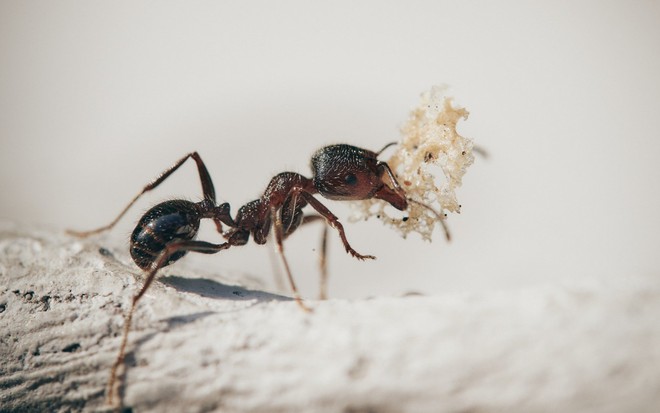It turns out that ants, when socially isolated and separated from the herd, also have the same “negative” expression as humans when isolated from the surrounding society.
Ants respond to social isolation much like humans and other mammals, according to a new study. Researchers found that ants that tolerated social isolation exhibited different patterns of behavior, such as lethargy and lazy communication.
Experts were particularly surprised to find that immune and stress genes became less active in the brains of isolated ants.
Professor Susanne Foitzik from Johannes Gutenberg Mainz University (JGU) explains: “This makes the immune system less efficient, a phenomenon commonly seen when people feel socially isolated, especially in the current context of the Covid-19 crisis” .
Mammals in society, like humans, experience the stress of isolation, which has a negative effect on well-being and physical health.
Lead author Professor Inon Scharf said: “People who are isolated become lonely, depressed and anxious, are more likely to develop addiction, and have weakened immune systems and impaired health. In general.”
The effects of social isolation have been widely studied in rats and humans, but little is known about insects. This is surprising because insects like ants seem to have traits in highly evolved societies.
During their lifetime, ants are part of a colony and depend on other members. Worker ants abandon their fertility to devote themselves to the responsibilities of feeding the larvae, cleaning and protecting the nest, and foraging for food.
Current research focuses on the effects of social isolation among ant species of the Temnothorax nylanderi species living in Germany. These ants live in forests, in holes, oak berries and sticks.
Researchers attempted to remove a worker ant from 14 colonies and kept them in quarantine for periods ranging from 1 hour to 28 days.
The team found that after being quarantined, worker ants cared less about their mates and spent less time grooming themselves. On the other hand, the time they incubate, they are less active.
Professor Susanne Foitzik explains: “Failure to follow this hygiene routine can make ants more susceptible to parasites, but it is also a typical feature of social isolation in colony organisms. Other herds.” .
Research shows significant changes in the behavior of the insect when isolated. The most striking finding, however, was changes in gene activity. Many genes are involved in the functioning of the immune system, and the ant’s stress response becomes less active after social isolation.
“This finding is consistent with studies in animals living on other social models. It shows a weakened immune system after isolation of individuals,” said Professor Scharf.
Professor Foitzik also shared: “Our research shows that ants are affected by isolation like mammals in society and shows a general link between social well-being, stress tolerance and immunity in animals socially. organized “.



